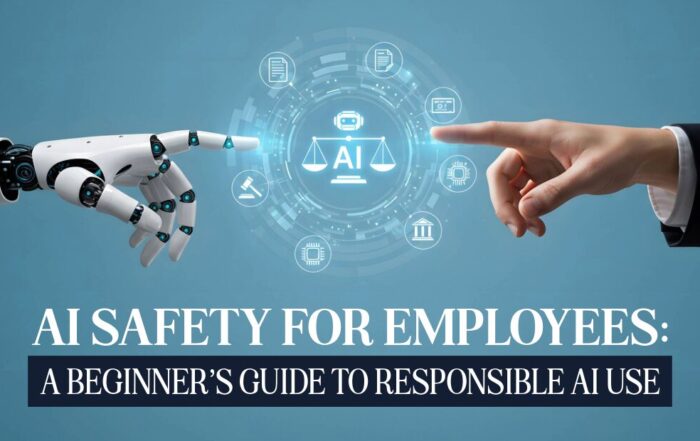Have You Ever Stumbled Upon A Thumb Drive Just Lying Around?
We’ve all experienced finding various items in parking lots, and sometimes, we even stumble upon something more intriguing – data. Imagine discovering files containing financial and payroll data, possibly providing a hidden goldmine of information about a business. However, it’s vital to understand the potential dangers and risks associated with handling such found data.
Instead of giving in to the temptation of exploring this data, the best course of action is to ensure its proper disposal. Utilizing recycle bins, crushing, or destroying the devices prevents crucial information from being exposed and freeing us from any unintended trouble. It’s critical to promote responsible data handling and security.
Key Takeaways
- Finding sensitive data like payroll and financial information can be intriguing, but safe handling is vital.
- Unknown devices may contain potential dangers, such as a “rubber ducky” attack, and should never be plugged into your computer.
- Proper disposal methods, such as crushing or recycling, will protect you and the original data owner.
Finding Items in the Parking Lot
We all have experienced discovering various items in parking lots, haven’t we? Sometimes, it’s just trash, but occasionally, we may come across something valuable like a $10 bill or even data. That’s right, sometimes people accidentally drop their data files while getting into their car. We could find anything from irrelevant software like Windows 3.1 to essential and sensitive information like payroll or financial data.
It’s tempting to explore the contents of those data files out of curiosity or for potential benefits. However, we are advising against it. Plugging these devices into your computer can result in severe consequences. For instance, there is malware known as a “Rubber Ducky,” which imitates a keyboard and poses significant risks to your system.
So, what should we do with these data files that have been found? Rather than compromising our security, we should aim to dispose of them properly. The ideal solution is to crush the devices to protect sensitive information from exposure. If that’s impossible, at least damage them with a hammer or similar tool.
Remember, it is essential to recycle electronic waste as it contributes to environmental safety. Many recycling companies offer data destruction services for this specific purpose. So, dispose of any found thumb drives or hard drives responsibly, and do not plug them into your computer.
By following these simple steps, you’re not only protecting your security but also respecting the privacy of others and contributing to environmental protection.


Potential Data Discovery
While walking through a parking lot, it’s common to stumble upon various items, including misplaced data. For example, finding discarded files containing payroll, financial data, or old software such as Windows NT or Windows 95. Most of these files might not be interesting, but payroll and financial information can reveal significant details about a business.
Keep in mind that plugging these files into your computer can be dangerous. Some devices, such as “rubber ducky,” can execute unwanted commands and compromise your system’s security. Therefore, it’s best to handle these discoveries responsibly and avoid exposing their contents to the internet.
Here’s what we recommend doing with these discovered files:
- Do not plug them into your computer – Using the files can put your computer at risk.
- Dispose of them correctly – Ideally, we should crush the files to protect their contents from unauthorized access.
- Recycle the files – We have recycling bins for proper disposal, allowing a recycling company to handle the data crushing.
By following these guidelines, we can maintain our security while preventing potentially sensitive data from falling into the wrong hands.
Handling Found Data
We’ve all experienced finding various items in parking lots, ranging from garbage to even small amounts of money. But what if we find data, such as files or disks, containing valuable information? It’s crucial to know how to handle such situations.
When we come across data, it might be tempting to explore its contents, especially if it contains critical business information like financial records or payroll data. However, plugging these items into our computers poses unnecessary security risks.
Devices like the rubber ducky can inadvertently cause harm to our computer systems. It appears as an innocent USB device but acts like a keyboard, executing commands that could lead to system compromise.
So, what should we do with the found data instead? Here are some steps to follow:
- Do not plug it in: Resist the urge to insert the thumb drive or disk into the computer.
- Dispose of it properly: Ideally, crushing the item is the best method to ensure that any sensitive information remains inaccessible.
- Recycle responsibly: If crushing isn’t an option, place the item in a recycling bin specifically for electronics or data, where the recycling company will dispose of it properly.
Following these guidelines, we can protect ourselves and others from any potential harm from plugging in found data. Remember always to prioritize security and dispose of such items carefully.
Dangers of Unknown Devices
We’ve all been there: walking through a parking lot and finding something interesting on the ground. Sometimes, it’s just trash, but other times it could be a USB drive or an external hard drive containing data. As tempting as it may be to explore the contents of these devices, we must resist curiosity and remember the potential hazards.
The danger lies in these devices’ unknown origin and potential risks. They might contain malware or be disguised as a Rubber Ducky, a device that mimics a keyboard to execute commands on your computer when plugged in automatically. This can be incredibly harmful and expose our systems to security breaches.
Here are some essential tips to consider when dealing with unknown devices:
- Do not plug them in: Never plug an unknown device into your computer, as the risks far outweigh any potential rewards.
- Dispose of them properly: Instead, dispose of these found devices securely. If they contain sensitive information, like payroll or financial data, it’s best to crush them or use a hammer to destroy them.
- Recycle responsibly: For organizations with proper disposal systems, use designated data recycling bins where a trusted recycling company will dispose of the device securely.
By following these precautions, we can protect ourselves from the potential dangers of unknown devices and maintain the security of our systems.
Proper Disposal of Data Devices
When disposing of data devices, it’s crucial to take the right steps to protect sensitive information. We’ve all stumbled upon discarded data devices, whether in parking lots or other public spaces, and it’s essential to know how to handle the situation.
To ensure that these misplaced devices do not cause any harm or breaches, follow these steps:
- Don’t plug them in: Plugging in a found device poses a significant risk, as it might contain malware or automated commands that can damage your computer.
- Crush or destroy the device: As responsible individuals, we should obliterate any sensitive data by severely damaging the device. Using a hammer or specialized tool to crush it makes it impossible to recover any information.
- Recycle the remains: Instead of throwing the destroyed device into regular waste, put it in a recycle bin designated for data devices. Trustworthy recycling companies will ensure the device is processed correctly and disposed of.
By following these guidelines, we can contribute to the responsible management of e-waste and help protect the privacy of others. Remember to be cautious and never plug in a thumb drive or hard drive you find!
Data Device Recycling Protocol
When encountering data devices like thumb drives or hard drives in unexpected places such as a parking lot, it is crucial to resist the temptation to plug them into our computers. These devices might contain sensitive information, like payroll and financial data, or even malicious files that could compromise our systems.
Handling found devices:
- Do not plug them in: Plugging in unknown devices can expose our computers to harmful malware, like a “rubber ducky,” which can execute unwanted commands automatically.
- Dispose of them properly: To protect sensitive information, we should crush the devices or use a hammer to destroy them.
- Use designated recycle bins: We have established recycle bins for data devices, where our recycling company will ensure proper disposal and prevent exposure of sensitive data.
By adhering to the Data Device Recycling Protocol, we safeguard our computer systems and protect sensitive information from unauthorized access. Additionally, proper disposal of data devices demonstrates responsible handling of potentially hazardous materials.
Conclusion and Safety Tips
We’ve all come across various items in parking lots. Sometimes, it’s garbage; other times, it’s something valuable like money; occasionally, it might be data in the form of thumb or hard drives. Although it may be tempting to see what’s on these devices, especially if they appear to have important information, our safety and others’ privacy must dispose of them properly.
Please remember the following safety tips:
- Do not plug in any found device: Devices like thumb and hard drives can carry dangerous software or devices like “rubber ducky” that could harm your system.
- Dispose of them correctly: To ensure the privacy of any potentially sensitive information, we should crush the devices before throwing them out. If you can’t destroy them, at least take a hammer to it.
- Recycle the devices: We highly recommend using recycling bins for data disposal. Many recycling companies will crush these items, ensuring the data stays protected.
We can keep our computers and sensitive information safe and secure by following these safety tips.
Latest Blog Posts
Quarterly IT Checklist SMBs Should Review in 2026
Quarterly IT Checklist SMBs Need to Stay in Control A quarterly IT checklist SMBs can [...]
AI Safety for Employees: A Beginner’s Guide to Responsible AI Use
AI Safety for Employees Starts With Clear Guidance AI is no longer a future technology. [...]
5 Real AI Use Cases for Small Medical, Legal, and Accounting Firms
SMB AI Use Cases Are Transforming Professional Service Firms Small professional service firms face pressure [...]
How to Create a Business Continuity Plan That Works
Introduction Every business faces unexpected disruptions — from power outages and cyberattacks to natural disasters. [...]
5 Ways to Enhance SMB Business with an MSP
Introduction Small and medium-sized businesses face more technology pressure than ever. Cybersecurity risks, cloud adoption, [...]
How to Secure Your Business Before the Holiday Season
The holiday business security guide is essential for every small and medium-sized business preparing for [...]











